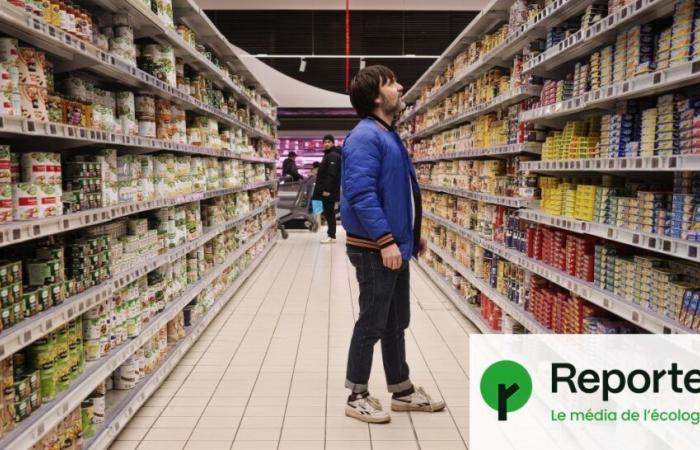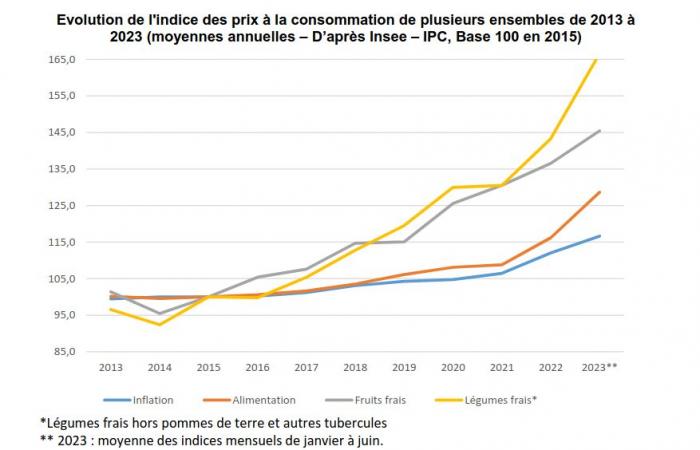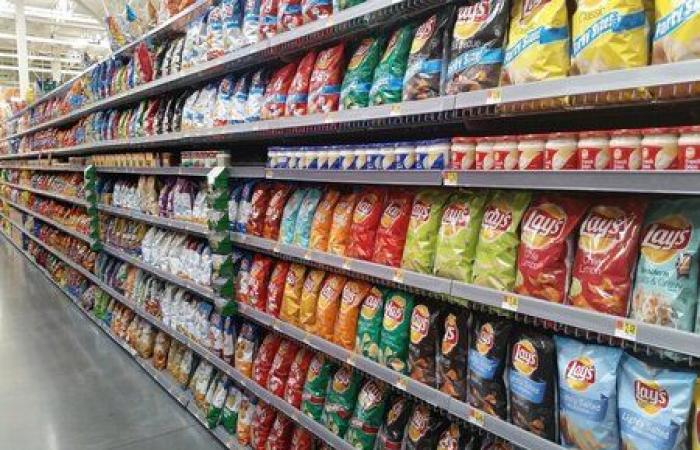Is Eating Healthy Food Really a Choice? ? No, according toONG Foodwatch. She has just published a study showing that the cheapest products in supermarkets are also, on average, the sweetest.
Canned peas, sandwich bread, cordon bleu… Of the 400 products analyzed in the E. Leclerc, Auchan, Carrefour, Coopérative U and Intermarché stores, the majority players in the sector, the verdict is clear: even the foods in which we don't expect to find any sugar in it. And above all, the products at the lowest prices, which are mainly private label brands, are the sweetest.
Social inequalities are therefore found even on our plates, and this will be a major theme of the weekend of debates and round tables organized by Reporterre and Ground Control, in Paris from January 24 to 26, on the theme « Do you choose your plate? ? ».
85% of the products analyzed contain added sugar, all categories combined.
Foodwatch survey
An example from the Foodwatch study: if you buy one of the five cheapest cans of peas, it will contain on average 43 % more sugar than one of the five most expensive. It is then difficult to respect the famous public health message « For your health, avoid eating too fatty, too sweet, too salty »…
« Consumers on a reduced budget cannot make the best choice for their health »says Karine Jacquemart, president of Foodwatch. She points out the responsibility of mass distribution in the creation of a « intolerable discrimination » in this « two-speed market » Or « only those who have the means can access healthier products ».
Cancers, heart attacks, diabetes…
« Home food is the item that most differentiates household consumption according to their standard of living », observed INSEE in 2020. Because they devote a larger part of their budget to food, it often becomes an adjustment variable for the most precarious. In 2017, a report from ANSES (National Health Security Agency) found that executives consumed on average 50 % more fruits and vegetables than workers.
Fruits and vegetables are all the more difficult to access as their prices have soared by 16 % between June 2022 and June 2023, according to the 2023 Fruit and Vegetable Price Observatory of Rural Families, i.e. 3.5 times more than general inflation. So that « eat at least five fruits and vegetables per day per person »as recommended by the National Nutrition and Health Program, weighs 5 % at 18 % of a monthly net minimum wage for a family of four, i.e. from 65 to 241 euros per month.
Given the price of fruits and vegetables, economic reality appears to be out of step with public health messages.
Rural families – Fruit and vegetable price observatory – according to INSEE
Constrained in their food choices, precarious people are also « the first victims of diseases linked to poor diet »notes Foodwatch. Thus, obesity, which affects 8.5 million adults in France, is twice as widespread in the lowest income categories. Excess sugar is one of the factors and, according to ANSES, can lead to type 2 diabetes, cardiovascular diseases and certain cancers.
« It's a double whammy for precarious people: they have to go for low-cost products, which exposes them to health impacts. »says Karine Jacquemart.
Opaque margins
Among the culprits of this « two-speed market » unequal, Foodwatch points out « on the beach » carried out by large retailers on the healthiest products. It aims « five players: Leclerc, Intermarché, Auchan, Super U and Carrefour, [qui] control 80 % of the food market. This control allows them to impose their conditions on suppliers, while using their power to influence consumption practices, since they are the ones who decide what they put on the shelves and at what price. ».
L’ONG worries about « excessive margins on the sly on the healthiest departments to compensate for less profitable departments and premium products with lower margins ».
« Excessive margins on the sly on the healthiest departments »
How to prove it ? The Observatory of price formation and food margins (OFPM) only follows the construction of prices for 34 products, mainly raw products, such as fresh meat or poultry, or very little processed, such as cheese and yogurt.
Despite this lack of transparency, the Rural Families association managed to demonstrate that in 2021, « it is in particular thanks to the profits of the fruit and vegetables department (+247 million euros after taxes) that the large distribution sector covered the losses of its bakery/pastry department (-65 million euros) ».
« Political reluctance » facing industrialists
Foodwatch, Rural families, What to choose and the association CLCV ask the State to impose transparency and control of margins on the healthiest and most sustainable products, not only in mass distribution, but also for food manufacturers. A request that has so far remained a dead letter, despite the commitment made by the President of the Republic in September 2023 to achieve « an agreement on the moderation of margins throughout the sector [alimentaire] ».
As part of discussions on the Social Security budget, parliamentarians also adopted a tax on added sugars in processed products. « The amounts of the tax could have been donated to the prevention and fight against social inequalities in access to healthy food », specifies the environmentalist deputy Sabrina Sebaihi, who brought this text to the National Assembly.
The amendment was swept aside by the government's recourse to article 49.3 of the Constitution, as was the obligation imposed on manufacturers to mention the Nutri-score of their products in their advertisements.
Read also: Eat well without breaking the bank: a village is experimenting with Social Food Security
« It is not technological constraints that prevent us from making peas without added sugar, they are economic choices. So we have to impose it politically »says nutritional epidemiologist Mathilde Touvier, who participated in the development of the Nutri-score. She denounces the « political reluctance »at the French and European level, facing the « lobby industrial » against the imposition of an obligation to display this classification of products on the shelves, based on their nutritional quality. Today, this value is displayed voluntarily by brands.
Furthermore, the decree to allow the entry into force of the new Nutri-score, the method of calculation of which would further penalize products that are too sweet, has still not been signed in France.
As for the idea of Social Security for food — which would allow coverage of the purchase of certain products, thanks to a social contribution on the model of Social Security in the field of health — it is its way through local experiments. A bill was tabled by the environmentalist MP Charles Fournier to expand them, by creating a national fund responsible for supplementing the coffers and financed by the State.
« CHOSE–ON SON PLATE ? »
-Meeting of Reporterre with Ground Control, in Paris, January 25 and 26, 2025.
- We will discuss food inequality on Saturday at Ground Control, with journalist Nora Bouazzouni, author of the book Eat the rich: the class struggle takes place on the plate (ed. Nourriturfu, 2023), and Karine Jacquemart, from Foodwatch, who recently published a survey showing that the cheapest products in supermarkets are also, on average, the sweetest.
- And another debate, still on Saturday, will allow us to think about a solution to this question, with Boris Tavernier, on the idea of Social Food Security. He is a deputy LFI du Rhône and co-founder of the Vrac association.
legend








